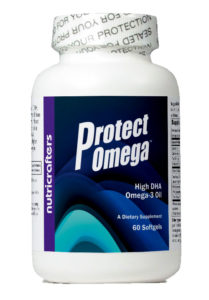 Omega-3 fatty acids are well known for their ability to support heart and joint health. Research studies show that omega-3 fatty acids can also help reduce asthma symptoms.
Omega-3 fatty acids are well known for their ability to support heart and joint health. Research studies show that omega-3 fatty acids can also help reduce asthma symptoms.
Asthma affects more than 20 million Americans, and the number of children falling victim to this chronic respiratory disease continues to rise. Some health care professionals believe that the incidence of asthma has increased in recent years because the typical American diet includes lower levels of antioxidants and omega-3 fatty acids (found in oily fish, such as salmon), and higher levels of omega-6 fatty acids (found in margarine and vegetable oils). This dietary imbalance creates an inflammatory state, which is the perfect set-up for chronic illness, such as asthma.
Control Inflammation to Reduce Asthma Symptoms
Studies show that an intake of supplementary omega-3 fatty acids can reduce asthma symptoms by calming the inflammation that triggers the asthmatic mechanism.
A recent study at Tanta University, Egypt, and published in Acta Paediatrica, focused on 60 asthmatic children, average age 8, who received 1000 mg of fish oil, 200 mg of vitamin C and 15 mg of zinc supplements, as individual supplements and as a trio. After just six weeks, there was significant improvement of pulmonary function and pulmonary inflammatory markers in the children, with the supplements given singly, and even more improvement when they were given together.1
A report published July ‘08 in the American Journal of Clinical Nutrition, discusses how the fish oil reduced the chance of those babies going on to develop asthma during their first 16 years of life. The researchers concluded that increasing intake of omega-3 fatty acids in late pregnancy might carry an important prophylactic potential in reducing asthma in children.2
According to the Asthma and Allergy Foundation of America, 80 to 90% of all individuals who have allergic asthma have exercise-induced asthma (EIA) with vigorous exercise or activity. And for teenagers and young adults, it is often the most common cause of asthma symptoms.
The good news is that, according to research findings by Indiana University exercise physiologist Timothy Mickleborough, there is convincing evidence that people who suffer from EIA can reduce asthma symptoms by supplementing their diets with fish oil.
In the fish oil study, the post-exercise lung function of the 16 participants—adults with mild-to-moderate persistent asthma—improved by about 64% and their use of emergency inhalers decreased by 31 percent when they consumed a diet supplemented with fish oil for three weeks.3
A recent follow-up study by Mickleborough and his team of researchers at Indiana University showed that of the active constituents of fish oil, eicosapentaenoic acid (EPA) is a more potent inhibitor of inflammatory responses in human asthma cells than docosahexaenoic acid (DHA).4
Safety precautions
Eating fresh fish every day used to be the best way to get high-quality fish oil. Not only is that difficult for most of us living in the U.S., much of the fish now found in the oceans, lakes, and streams contain dangerously high levels of mercury and other toxins.
The health risks of ingesting these toxins may outweigh the benefits of getting omega-3s … since we’d have to eat a lot more fish than may be considered safe.

Supplementing your diet with high quality fish oil capsules is the next best thing to relying on fresh fish. Just be sure that you take a high-quality, fresh product. Check the expiration date on the bottle, and cut open a capsule and taste the oil. If it tastes and smells like fish that’s gone bad, don’t eat it! It is rancid oil. Even the best oil will be fishy and oily but will not have that sharp, bitter, fishy smell of rancid fish oil. Unfortunately, most fish oil supplements are not high quality, so you shouldn’t trust anything from a grocery or discount store.
Conclusion
Research on omega-3s has come a long way, and undoubtedly there are many more exciting discoveries to be made. In the meantime, we can rely on the thousands of studies indicating the immense benefits that omega-3 fatty acids provide … and reduce asthma symptoms by eating fish every day, or supplementing our diets with fish oil capsules. It’s probably safe to say that omega-3 just may be the most important single dietary supplement you can take.
Related Articles
References
- Biltagi MA, Baset AA, Bassiouny M, Kasrawi MA, Attia M. Omega-3 fatty acids, vitamin C and Zn supplementation in asthmatic children: a randomized self-controlled study. Acta Paediatr. 2009 Apr;98(4):737-42. Epub 2008 Jan 11.
- Olsen SF, Østerdal ML, Salvig JD, Mortensen LM, Rytter D, Secher NJ, Henriksen TB. Fish oil intake compared with olive oil intake in late pregnancy and asthma in the offspring: 16 y of registry-based follow-up from a randomized controlled trial. Am J Clin Nutr. 2008 Jul;88(1):167-75.
- Mickleborough TD, Lindley MR, Ionescu AA, Fly AD. Protective effect of fish oil supplementation on exercise-induced bronchoconstriction in asthma. Chest. 2006 Jan;129(1):39-49.
- Mickleborough TD, Tecklenburg SL, Montgomery GS, Lindley MR. Eicosapentaenoic acid is more effective than docosahexaenoic acid in inhibiting proinflammatory mediator production and transcription from LPS-induced human asthmatic alveolar macrophage cells. Clin Nutr. 2009 Feb;28(1):71-7. Epub 2008 Dec 2.
